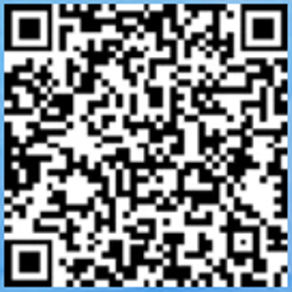时间:2024年9月19日14:00-16:30
地点:紫金港校区行政楼1417报告厅
1.学术报告(14:00-15:00)
Speaker:
Michele Guindani
Bio:
Michele Guindani, Ph.D., is a Professor in the Department of Biostatistics at the Fielding School of Public Health, University of California, Los Angeles (UCLA).
Professor Guindani’s research spans Biostatistics, Data Science, Machine Learning, Statistical decision-making under Uncertainty, Multiple comparison problems, Statistical Imaging, Clinical Trials, Study Design, Clustering, Bayesian modeling, and Nonparametric Bayesian models.
Professor Guindani is Fellow of the American Statistical Association (ASA) and the International Society for Bayesian Analysis (ISBA). He is the current President of the International Society for Bayesian Analysis (ISBA).
Talk Title:
Connecting the Dots: Statistical Models in Brain Imaging and Brain Networks Dynamics
Talk Abstract:
Statistical methods play a crucial role in brain imaging, enabling researchers to uncover the complex patterns of brain function and connectivity. In this talk, we will begin by highlighting the critical role that statistical approaches play in the analysis of imaging data, particularly in the context of functional magnetic resonance imaging (fMRI). We will discuss how appropriate statistical methods are necessary to handle the complexity of spatial and temporal correlations typical of brain data.
Building on this foundation, we will then discuss approaches to studying dynamic brain connectivity, which seeks to understand the changing interactions between different brain regions over time. We will present two novel Bayesian approaches designed to capture these dynamic relationships within multivariate time series data.
First, we will present a scalable Bayesian time-varying tensor vector autoregressive (TV-VAR) model, aimed at efficiently capturing evolving connectivity patterns. This model leverages a tensor decomposition of the VAR coefficient matrices at different lags and sparsity-inducing priors to capture dynamic connectivity patterns.
Next, we will introduce a Bayesian framework for sparse Gaussian graphical modeling, which employs discrete autoregressive switching processes. This method improves the estimation of dynamic connectivity by modeling state-specific precision matrices, using innovative prior structures to account for temporal and spatial dependencies.
Throughout the talk, we will illustrate the power and flexibility of these Bayesian methods with examples from simulation studies and real-world fMRI data. Our discussion will emphasize the importance of these innovative statistical tools in advancing our understanding of brain connectivity and their potential for applications in neuroscience research and clinical practice.
2.学术报告(15:00-16:00)
Speaker:
Hua Zhou
Bio:
Dr. Hua Zhou is Professor of Biostatistics at UCLA Fielding School of Public Health, Professor of Computational Medicine at UCLA Geffen School of Medicine, and Director of the Master of Data Science in Health (MDSH) Program. Dr. Zhou’s research expertise includes statistical computing, electronic health records, smart health, statistical genomics, neuroimaging, and data science education. He is Fellow of the American Statistical Association (ASA). Dr. Hua Zhou oversees multiple National Science Foundation (NSF) and National Institutes of Health (NIH) grants as the Principal Investigator (PI). He serves on the editorial board of major statistical journals such as the Journal of American Statistical Association Theory and Methods, Annals of Applied Statistics, and Journal of Computational and Graphical Statistics.
Talk Title (Research):
Statistical Methods and Computational Algorithms for Analyzing Biobank Data
Talk Abstract:
The availability of vast amounts of longitudinal data from electronic health records (EHR) and personal wearable devices opens the door to numerous new research questions. In this talk, Dr. Hua Zhou will describe his group's recent efforts in developing scalable statistical methods and computational algorithms for analyzing up to a million samples, millions of genetic markers, and intensively measured mobile health data in massive biobanks such as UK Biobank, NIH All of US, and Million Veteran Project.
3.招生宣讲答疑(16:00-16:30)
Talk Title (Information Session):
UCLA Biostatistics: Training Next-Generation Health Data Scientists
Dr. Hua Zhou will introduce the admission, curriculum, class schedule, and career prospects of the academic programs - Master of Data Science in Health (MDSH, https://mdsh.ucla.edu/), MS, and PhD - at UCLA's Department of Biostatistics. Dr. Hua Zhou has been serving on the admission committee for nine years and will be available to meet prospective applicants after the talk. Interested senior students can bring their resumes, transcripts, and TOEFL or IELTS results (if available) for individualized advice.
欢迎有兴趣出国深造的高年级本科生同学投递简历(huazhou@g.ucla.edu),周华教授将现场解答相关问题。
【扫码报名】

